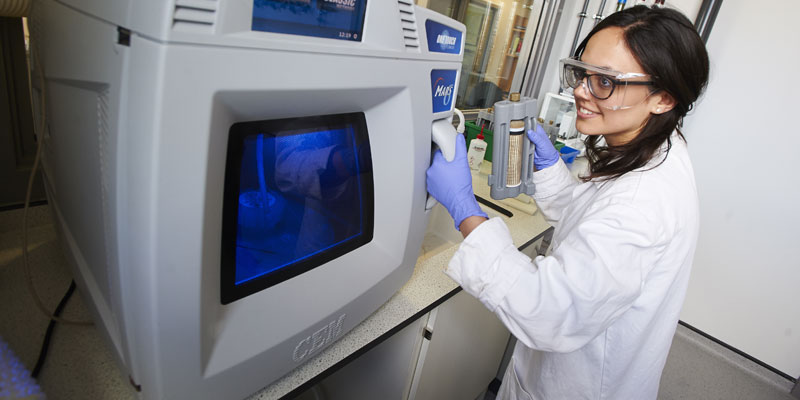
Sustainable Technologies
Supercritical fluid technologies, in particular supercritical CO2, can offer several advantages in extraction and purification which we are able to exploit on a variety of scales.
Microwave technology for heating has been shown to be more energy efficient than conventional methods in many applications. Microwave irradiation is rapid and volumetric with the whole material heated simultaneously. In contrast, conventional heating is slow and the heat is introduced into the sample from the surface. This feature of microwaves is very important for processing poor thermal conducting materials such as wood.
Microwave heating can be controlled instantly and the power applied can be accurately regulated. This allows safe and precise control, even when applying very rapid heating rates. Microwaves also promote novel reaction pathways and can greatly accelerate reaction rates.
The use of microwaves for the conversion of biomass to valuable products offers a number of very important advantages:
- Lower temperatures
- Mobile processors that can be located next to large concentrations of biomass, such as farms
- Flexible processing enabling the production of liquid fuels, solid fuels and chemical products
- Reduced CO2 burden and low product carbon footprints
- Rapid, continuous processing and high energy efficiency
We have created a dedicated laboratory scale microwave facility where we can take reactions from 1mL to 1000mL scale under hydrolysis or pyrolysis conditions using our suite of eight microwaves. These include the Milestone SynthWAVE capable of carrying out extraction at high (300⁰C) temperatures and high pressures (199bar); the Sairem Miniflow configured to run reactions in continuous flow or batch mode and a Milestone RotoSynth fitted with a 2L reactor and specifically designed distillation apparatus to enable biomass pyrolysis to be carried out followed by bio-oil fractionation.
We are also exploring the benefits of flow chemistry, solid supported chemistry, and mechanochemistry, and have a Retsch ball-mill PM100.
